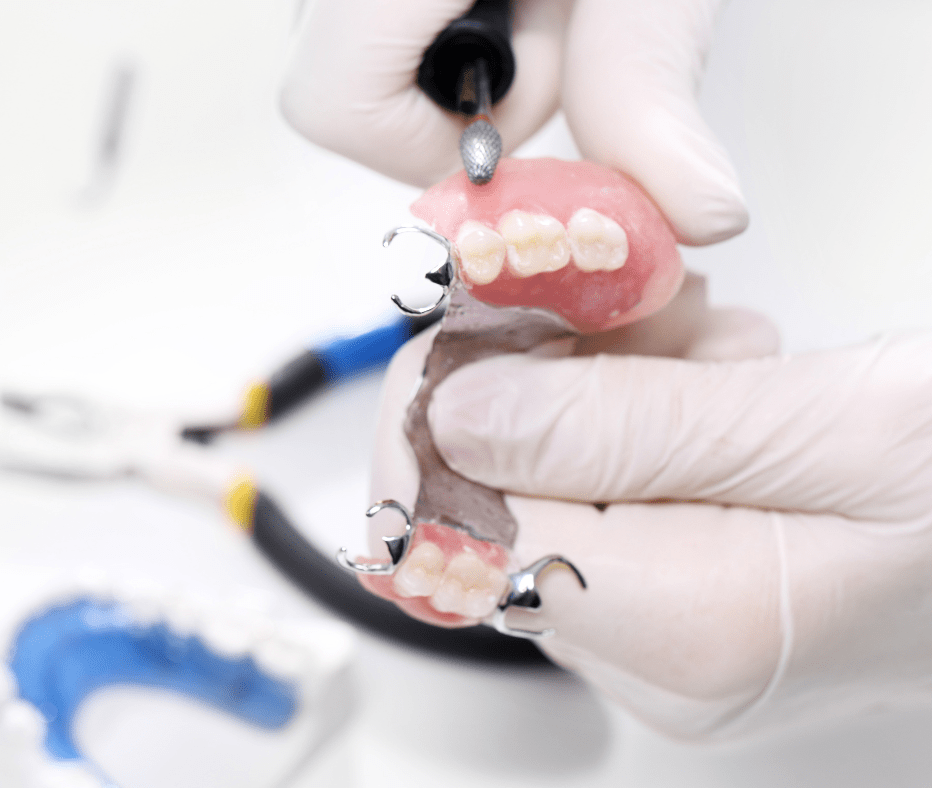Dental Crowns & Bridges
- Replace missing teeth
- Minimally invasive.
- Cover damanged teeth
- Bring confidence back
What are Dental Crowns?
Dental crowns, often referred to as “caps” by some, are tailor-made covers for teeth that have been significantly weakened by procedures such as root canals, leaving insufficient tooth structure, cracked or weakened teeth, or teeth so decayed that a conventional filling would not suffice. Typically, we utilise porcelain to fabricate the crown, owing to its superior ability to blend with your natural teeth. The process of fitting a crown requires two appointments.
During the initial appointment, we prepare the tooth to ensure the crown fits snugly over it. We then take an impression of the tooth so the crown can fit precisely between the adjacent teeth and mimic the size and shape of the tooth being capped. At the conclusion of this visit, a temporary crown is attached to safeguard the tooth until the permanent crown is ready.
Two weeks later, you will return for your second visit, during which we securely cement the permanent crown in place. We take extra care to ensure the crown feels comfortable and natural in your mouth, and that your bite is properly aligned.


What are Dental bridges?
Dental bridges offer a durable solution for replacing one or more missing teeth. They essentially “bridge” the gap created by missing teeth. A bridge comprises two crowns on either end (known as abutment teeth) and a false tooth or teeth (known as pontics) in between. These pontics can be made from various materials including gold, alloys, porcelain, or a combination of these materials.
The abutment teeth can be your natural teeth or dental implants, prepared to support the bridge. The selection of abutment is crucial for the stability and longevity of the bridge.
Similar to crowns, the bridge-making process typically involves two appointments. The first appointment focuses on preparing the abutment teeth, taking impressions for the creation of the bridge, pontics, and crowns, and fitting a temporary bridge. During the second visit, the temporary bridge is removed and the new porcelain or metal bridge is checked and adjusted to ensure a proper fit. Once the fit is confirmed, the bridge is cemented into place, restoring the natural contour of your teeth and the proper bite relationship between the upper and lower teeth.
Is it painful to get a crown?
Getting a crown is not typically painful because the procedure is performed under local anaesthesia. Some sensitivity or discomfort may be experienced after the anaesthetic wears off, but this is usually temporary.
How long will a dental bridge last?
A dental bridge can last between 5 to 15 years, or even longer with good oral hygiene and regular dental check-ups. The longevity depends on the material used and the care taken to maintain oral health.
What is the downside of a dental bridge?
Downsides include potential damage to the structure of natural abutment teeth, which need to be filed down to support the bridge; risk of decay if the bridge and surrounding teeth are not well maintained; and the need for replacement over time due to wear or damage.
Is a bridge better than an implant?
Whether a bridge or an implant is better depends on individual circumstances, including oral health, the location of the missing tooth, cost considerations, and patient preference. Implants can offer a more durable and independent solution, but require sufficient bone structure and a longer treatment time. Bridges can be quicker to fit and less invasive, but rely on adjacent teeth for support.
Is dental bridge painful?
Fitting a dental bridge usually involves minimal discomfort, as the procedure is typically performed under local anaesthesia. Some sensitivity or soreness may occur after the procedure, but this is generally temporary and can be managed with over-the-counter pain relief.


Frequently Asked Questions About Crowns and Bridges
A dental crown is a custom-made cap that covers a damaged or weakened tooth to restore its shape, size, and strength. A dental bridge is a prosthetic device used to replace one or more missing teeth by anchoring artificial teeth (pontics) between healthy teeth or dental implants.
The lifespan of crowns and bridges can vary depending on factors such as oral hygiene, diet, and habits like teeth grinding. On average, dental crowns and bridges can last between 5 to 15 years or longer with proper care and maintenance.
The cost of a bridge or a crown can vary depending on factors such as the material used, the complexity of the treatment, and the dentist’s expertise. Generally, dental bridges tend to cost more than individual crowns because they involve the fabrication of multiple crowns and additional dental work to replace missing teeth.
The placement of crowns and bridges is typically not painful, as it is performed under local anesthesia to numb the area. However, some patients may experience mild discomfort or sensitivity after the procedure, which usually subsides within a few days. Your dentist will provide you with instructions on how to manage any discomfort and care for your new crown or bridge.


